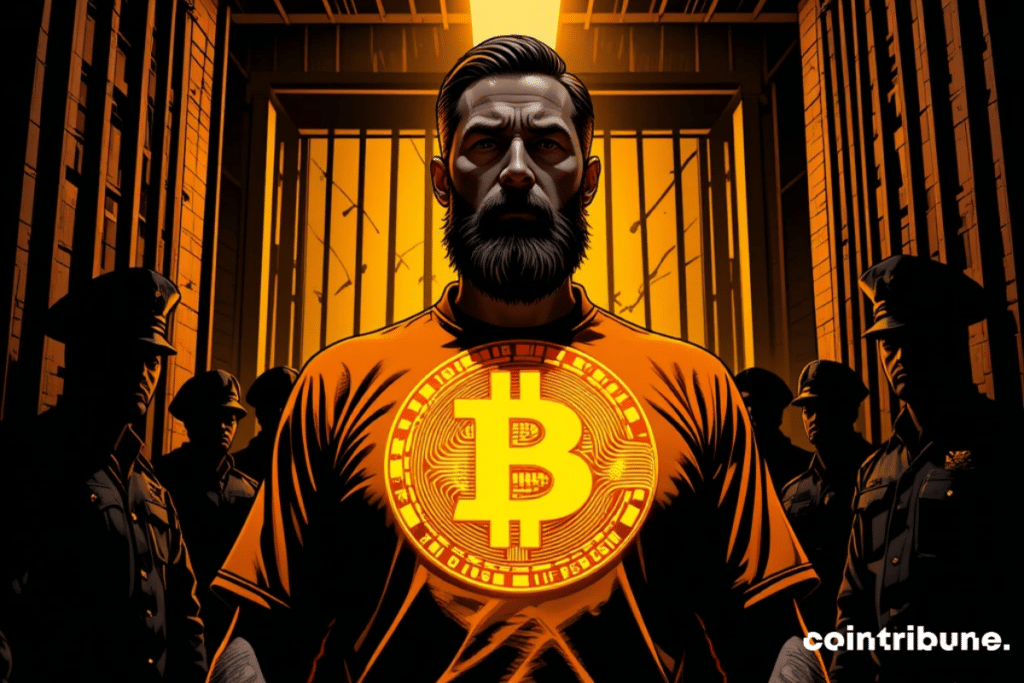Ulbricht was convicted of 7 charges and received a severe sentence:
— Daxx (@DaxxTrader) January 22, 2025
– Two life sentences plus 40 years
– No possibility of parole
– Ordered to forfeit $183,961,921
The DOJ also seized 173,991 Bitcoin in this case…
Worth around $18.4 BILLION today. pic.twitter.com/S2NCBw1b7b
A
A
Silk Road: Ross Ulbricht, $47 Million In Bitcoin And Donations Still Pouring In
Thu 23 Jan 2025 ▪
4
min read ▪ by
Getting informed
▪
Event
The crypto community rejoices: Ross Ulbricht, founder of the infamous Silk Road, has regained his freedom after 12 years of detention. This former mastermind of the anonymous marketplace on the darknet continues to polarize opinions, between the fervent support of cryptocurrency advocates and the fierce criticism of his detractors. In a show of solidarity, Kraken, an emblematic crypto exchange, made a generous donation in Bitcoin. However, his release reignites deep debates about Ulbricht’s role in the history of Bitcoin and decentralization.

Bitcoins for Ross Ulbricht: a tool of freedom or a double-edged sword?
Ross Ulbricht, known as “Dread Pirate Roberts”, made history by launching Silk Road in 2011, a free market platform using Bitcoin and Tor. His goal: to offer a space for exchange free from state control. The result? Anonymous transactions ranging from art to illicit substances.
While this libertarian vision is appealing, it has also attracted the wrath of the authorities.
Ulbricht’s arrest in 2013 led to a massive seizure of 173,991 BTC by the U.S. government, now valued at $18.4 billion. Yet, wallets associated with Silk Road, worth $47 million, still elude the control of authorities.
As Ross Ulbricht has just been pardoned by Donald Trump, Kraken decided to intervene with a donation of $111,111 in Bitcoin, sent to the official FreeRoss.org platform, a site that advocates for his rehabilitation.
This initiative is part of a global support movement: 2.5 BTC, worth approximately $261,000, have been collected by 93 donors.
“We want to help Ross get back on his feet after everything he has been through,” Kraken stated in a widely shared tweet.
This action highlights Ulbricht’s ambiguous position in the crypto world: a libertarian visionary for some, a facilitator of black markets for others.
A divided but mobilized crypto community
The release of Ross Ulbricht, orchestrated by Donald Trump, has sparked a wide debate. For his supporters, this gesture symbolizes the recognition of a disproportionate sentence: two life sentences, accompanied by 40 additional years, for non-violent crimes.
For others, this release could encourage the illicit use of cryptocurrencies, tarnishing the image of Bitcoin.
However, Ulbricht’s impact goes beyond the crypto boundaries. Hollywood is working on a documentary that promises to explore his deeper motivations and implications for the future of digital currencies. His vision of a free market, free from government control, still resonates in libertarian circles. But at what cost?
Trump’s initiatives toward the crypto sector, as recent tweets suggest, could go further. Some envision a strategic Bitcoin reserve, marking an unprecedented institutional adoption.
Nonetheless, the controversy remains intense: is Ulbricht a martyr of decentralization or a pioneer who crossed the red line?
But why did Donald Trump want to save Ross Ulbricht? On one hand, he embodies the democratization of Bitcoin and resistance to centralized authority. On the other, the former president has used this pardon to distinguish himself from past judicial excesses, thus asserting his vision of a crypto-friendly future.
Maximize your Cointribune experience with our "Read to Earn" program! For every article you read, earn points and access exclusive rewards. Sign up now and start earning benefits.
A
A
La révolution blockchain et crypto est en marche ! Et le jour où les impacts se feront ressentir sur l’économie la plus vulnérable de ce Monde, contre toute espérance, je dirai que j’y étais pour quelque chose
DISCLAIMER
The views, thoughts, and opinions expressed in this article belong solely to the author, and should not be taken as investment advice. Do your own research before taking any investment decisions.